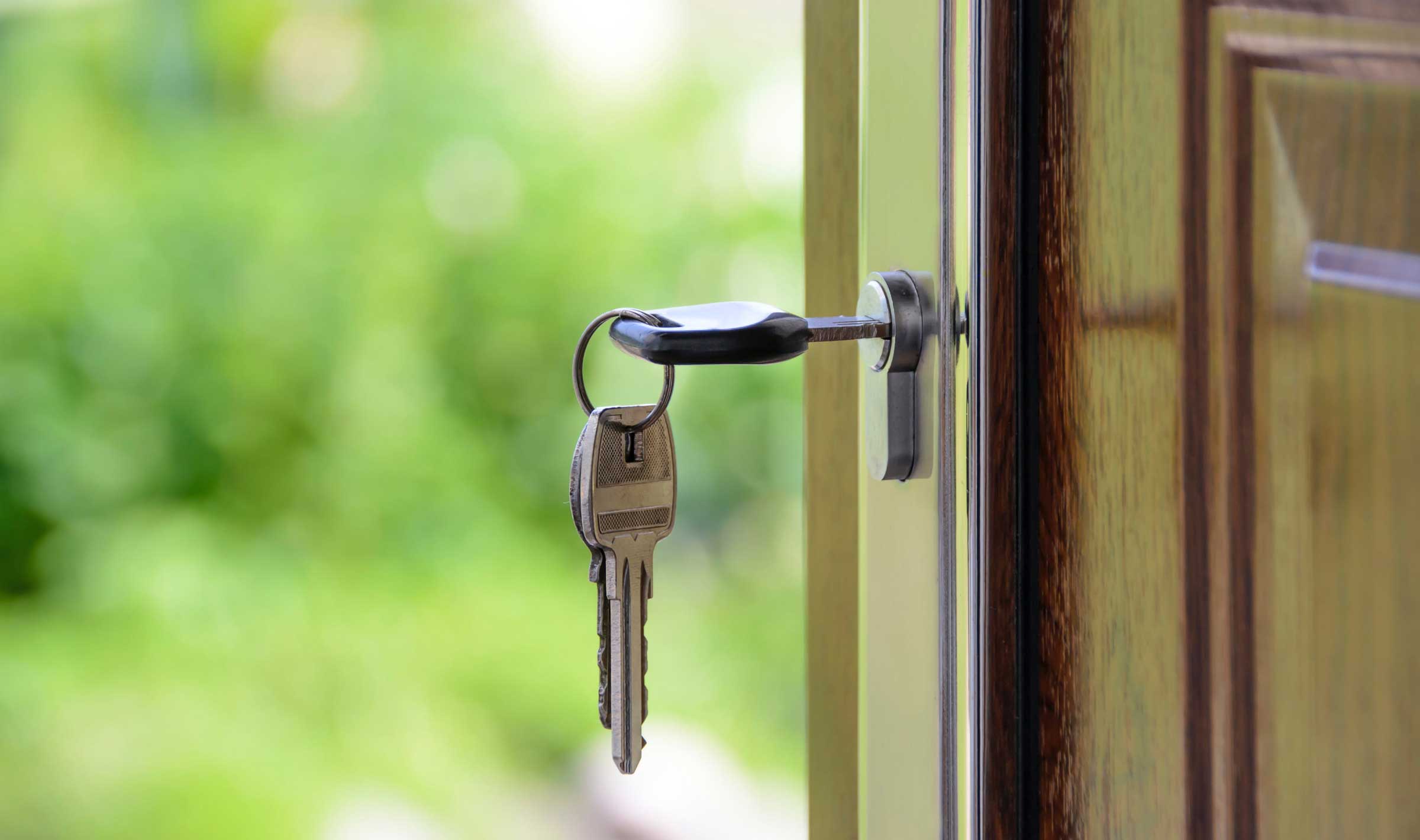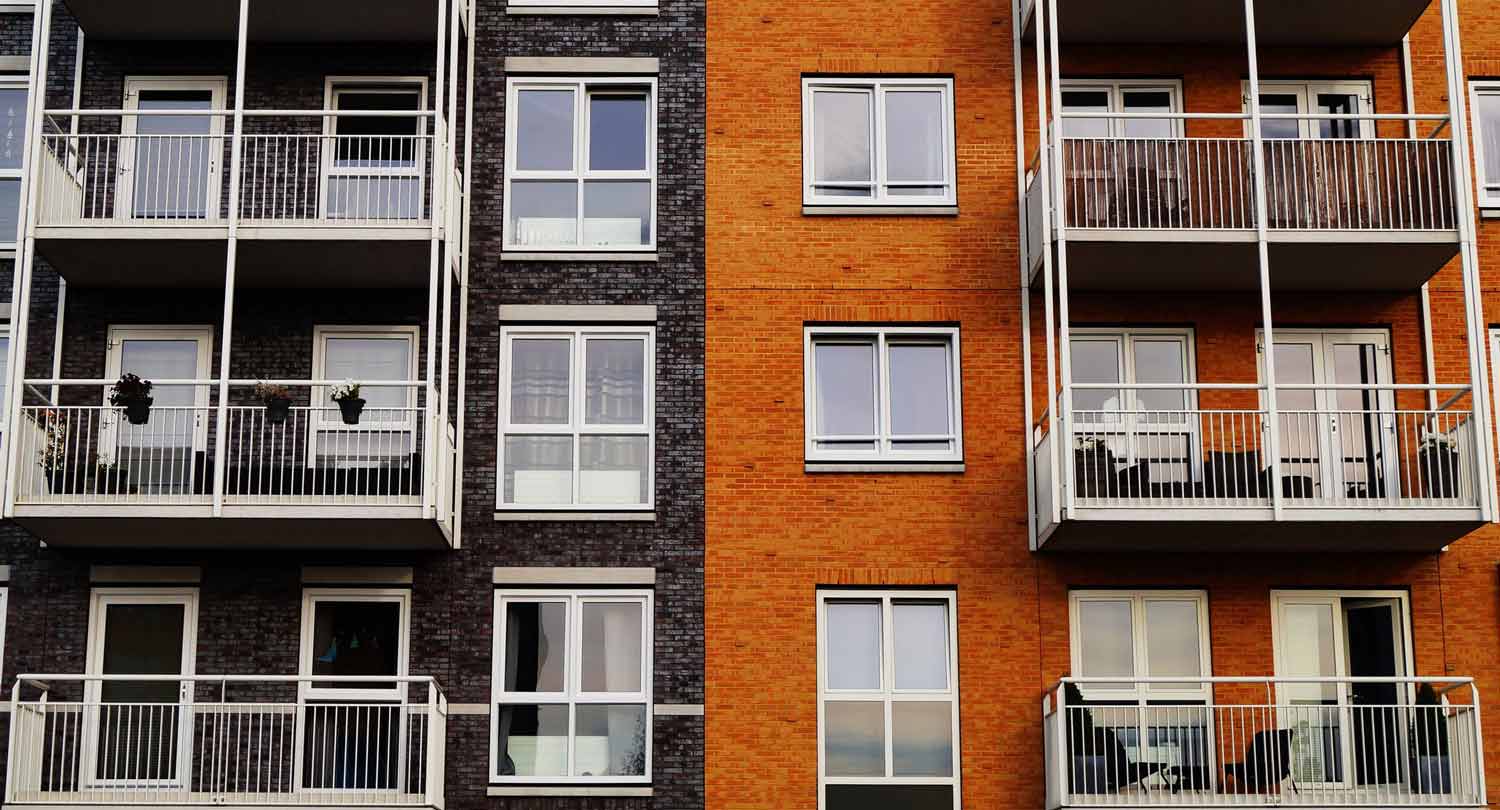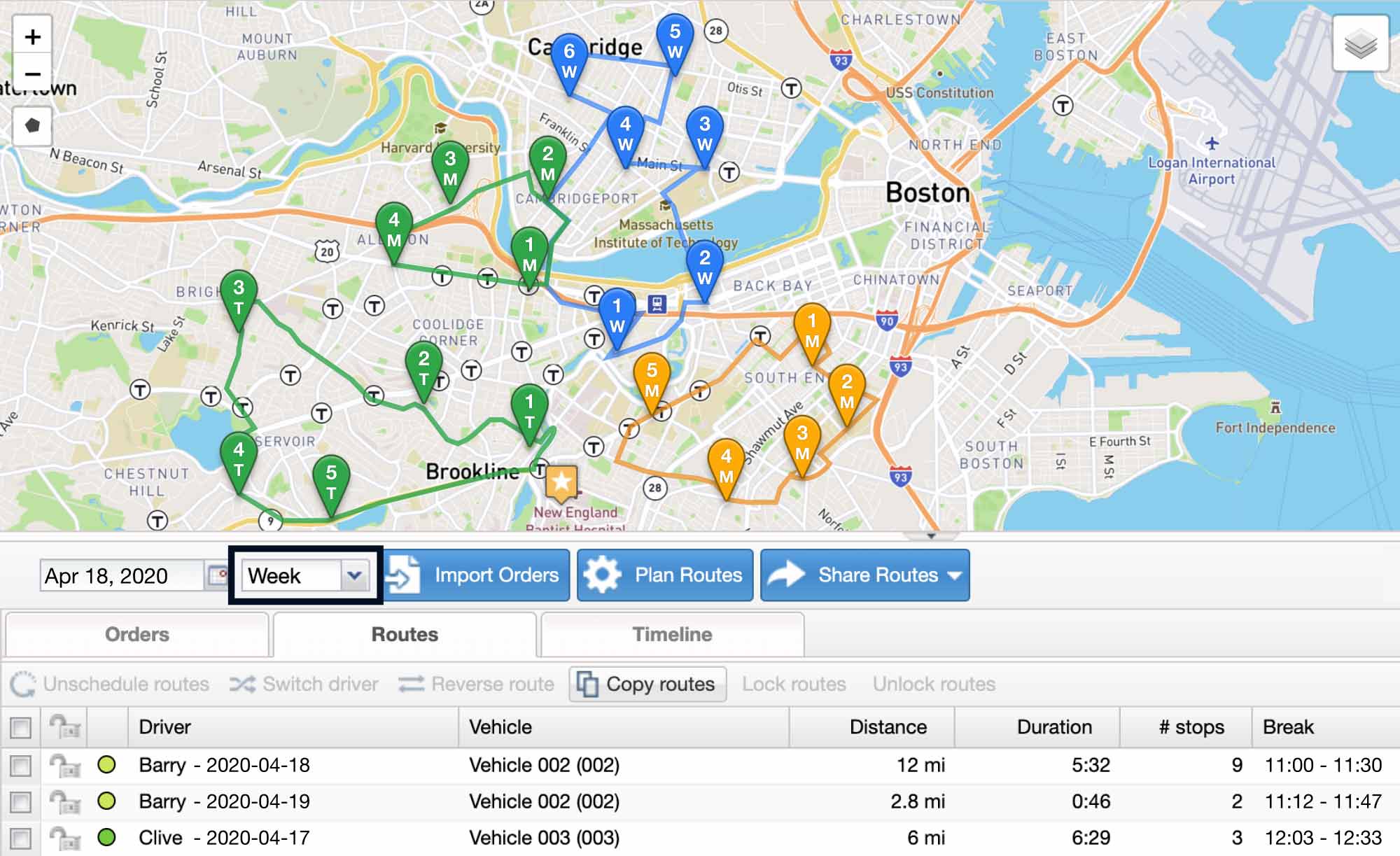Guide to Choosing the Best Property Management Software
11 min read

As real estate and property managers, you have a lot of moving parts on your plate. Not only do you have to keep up with the daily demands of your properties, but you also need to prepare for future tenants, decide on building improvements, keep your budget on track, and more.
This is where property management software comes in: the right solution can help streamline your and your associates’ duties, ultimately saving you time, money, and stress. But with over 350 different types of this software available, where do you start?
As we’ll see below, real estate and property management platforms can offer a wide range of different features and solutions. We’ll break down what types of property and real estate management software options are on the market, and how to choose the best ones for your needs.
Feel free to jump to a section that will help you the most:
- What Is Property Management Software?
- What Types of Software Do You Need for Property Management?
- How Property Managers Can Choose the Best Real Estate Management Software for Their Needs
- How OptimoRoute Can Help Property and Real Estate Owners
What Is Property Management Software?
Property management software is a solution to optimize and streamline the day-to-day duties of landlords and real estate/property managers, as well as those who work for them. This type of software can support residential or commercial properties, and usually comes either fully-inclusive (i.e. full-suite) or works in conjunction with other software to handle common real estate areas like tenants, leasing, accounting, and building maintenance.
According to Grand View Research, the property management software market was valued at $1.58B in 2019, with a projected compound annual growth rate of 5.2% from 2020 to 2027. This stat signals a growing interest and wider availability of tools/software in this industry.
Of course, the considerable size of this market means it can be tough to sort through all your options and figure out what will work for your particular needs. However, if you start optimizing your processes now, you’ll be set up for smoother operations in the long term and will have a better idea of which systems to look out for in the future.

What Types of Software Do You Need for Property and Real Estate Management?
Since the property management software industry is quite big (and is still developing), property owners and managers have a lot of options to choose from. When you start choosing real estate management solutions, these are the main types of software to consider:
Scheduling
All property managers need good scheduling software to track important information or appointments like tenant move-in and move-out dates, rental payment due dates, and employee/staff work schedules. Property management scheduling software can also help you track your maintenance needs, covering everything from appliances to pest management to building upgrades and improvements.
You could use readily-available solutions like Google Calendar or Microsoft Outlook, or you could go with software that specializes in creating and optimizing schedules and calendars. An example of this software is TeamUp, which lets you provide user-based security access, tag or label the types of events on your calendar, and even gives you a timeline view of scheduled events.
Real estate showings and tours
On a related note, you could invest in software specifically designed to help better manage your showings and tours for prospective tenants or buyers. This option is useful for landlords or property managers who have a lot of tours, showings, or visits to keep track of on a weekly basis.
Some examples of this type of property management software include Knock, Anyone Home, and Rently. Many of these solutions offer the ability for potential renters or owners to schedule self-guided tours, which is a beneficial feature for any property manager looking to mitigate risk of personal contact in a Covid-influenced world.
Transportation and routing
When you plan to conduct any in-person meetings, tours, or visits of your rental properties, you might not think about using transportation and routing software for property management. However, optimizing your routes for these in-person events could help you reduce the amount of time on the road, save hours of your time each month, and lower your overall costs of transportation.
Not all property management software options include an efficient way to optimize your transportation needs, so look to solutions like OptimoRoute to aid you in this area. OptimoRoute works as a real estate route planner to help you visit more clients in less time by scheduling and optimizing multiple routes, destinations, and reasons for visits across your team or with any related service professionals (appraisers, inspectors, maintenance crew, etc.).
Billing & accounting
You need a billing and accounting solution to handle your financial operations like rent collection, taxes, bookkeeping, and more to keep your budget in order.
Solutions like Proper.ai and NCR’s Commercial mRDC for remote deposits are specifically meant to handle receiving and managing payments for your real estate needs. Other property management software like Schedule My Rent and SimplifyEm include ways for tenants’ rent payments, but also boast features that could place them in the mid- or full-suite solutions category.
Records-keeping
When you need to manage any sort of documents involved in your real estate and properties, the best option is a records-keeping software. This software will help you store and keep track of contracts, lease agreements, insurance agreements, rental applications, renter’s insurance, and more.
Like other types of property management solutions, record-keeping and lease management features can often be found in all-in-one software or you can turn to specialized tools. For example, Knock allows you to process applicant screenings digitally, while Evernote has been a long-time star in the cloud document storage and technology scene.
Tenant management
Some property management companies might want to keep tenant notes and information as a separate solution within their real estate tech stack. This software type gives you the ability to conduct various tasks related to your tenants, such as keeping track of occupancy rates, vacancies, and number of units available, saving notes about tenants, submitting background checks, and running credit scores.
Software solutions that include tenant-tracking features include Turbo Tenant (which lets you set up online applications and screen tenants) and SmartMove (TransUnion’s service for running credit and background checks for landlords).
Tenant communications and feedback
For clear, transparent communication with your renters, consider choosing software beyond any integrated chat systems any of your current property management solutions may have. For example, create WhatsApp accounts for your separate communities, or keep everything in your email inbox (Gmail/Google Workspace, Microsoft Outlook, etc.).
You can also look to solutions like SurveyMonkey when you want to request feedback from tenants about their experiences so you can provide a better customer support experience. On a commercial scale, you can use software like HqO to interact with tenants, set up notifications about building events, and build community through forums.

Real estate listings and neighborhood monitoring
When you need to list your available rentals and keep an eye on the value of surrounding properties/real estate, it’s time to look into software or solutions designed for those purposes. Usually, these platforms can help you advertise and market available properties in your portfolio, as well.
Apps like Zillow, Apartments.com, and Nextdoor are well-known solutions for real estate or rental listings and neighborhood monitoring. You could use these on their own, or in conjunction with your current property management solution and its marketing/advertising features to maximize your potential reach.
Reputation management
While many of your duties as a landlord or real estate/property owner are usually tangible in nature (e.g. handling service requests or interacting with tenants), you need to be aware of something more abstract: your reputation. Some tenants may be satisfied with the condition of their living or working spaces, but others may not and could leave negative reviews of your company online.
Your reputation can greatly impact your business success; in fact, Binary Fountain discovered 96% of potential renters consider online reviews when searching for an apartment, and 57% were influenced by a property’s negative reviews. In order to improve your online ratings and reputation, you can turn to solutions like Testimonial Tree or reputation.com to respond to customer feedback and handle complaints.
Smart home systems
Some landlords might want to modernize their property management tech stack, especially in a world influenced by covid-19. Many organizations are moving this direction as it is; in fact, 43.2% of them said they now plan to modernize when they previously didn’t have a plan before covid.
One of the best ways to modernize and automate your real estate software is by integrating smart home apps and systems into your tech stack. For example, you can use alarm.com for video surveillance, intrusion alerts, and multi-location management. You could also turn to a solution like HomeServe which tracks items like appliances and make it easier to notify vendors/contractors about repair needs or when there’s an emergency with the home/apartment.
Commercial real estate
Some of the types of software mentioned here won’t be enough to cover the needs of commercial properties, which often have different concerns than residential properties, like investment strategies, space management, and even public housing compliance. If you need options that are directly supportive of your commercial needs, you can turn to solutions built for this purpose.
For example, MRI Commercial Suite and AppFolio are two solutions that cater to the commercial real estate industry. These technologies aid in improving strategic planning, reducing costs, and overall increasing the efficiency of your larger operations.
Full-suite
Top full-suite property management software options include many — if not all — of the tasks and features mentioned above. These solutions are meant to be an all-in-one platform for landlords who aren’t necessarily looking for a larger tech stack, and want to handle most of their tasks from one location.
Examples of full-suite software include Buildium, ManageCasa, TenantCloud, and RealPage. These solutions often have a wide variety of features and solutions available, but with efficient, streamlined training in these property management options, your staff can manage nearly all of their duties at once.

How Property Managers Can Choose the Best Property Management Software for Their Needs
Just thinking about all these property management solutions might give you a headache, but not to worry. By asking the right questions, you can eliminate options that won’t work for you and better pinpoint the one(s) you need for your particular situation and business.
Start by asking yourself questions like:
1. Is this solution full-suite or will I need other software?
Full-suite property management software can be a useful, all-in-one solution for busy real estate and property manager, but it’s completely understandable if a single piece of software doesn’t meet all your requirements. Just keep in mind that you may need to look for secondary solutions to fill in any gaps.
2. Does this integrate with other systems I currently use?
Do you already have software you like using and just want to supplement with complementary tech? If so, make sure any solutions you pick are able to integrate with each other or will work in conjunction without any problems.
3. How easy is it to learn and use?
One of the top frustrations property managers have with real estate technology is how long it takes to migrate and adopt. Not all property management software is easy to understand and use, so opt for demos of your top picks whenever you can and get feedback from any of your staff who will also use the software.
4. Will the benefits of the software outweigh the cost?
Some property management software may seem like a lot of money at first glance, but you should look at the purchase as a long-term investment. If it will boost your productivity, save hours of your time each month, or ultimately provide a good return on your investment at the end of the year, you’re making a smart choice.
5. How will this software reduce my workload, and/or help me scale my business?
There’s no point in buying software if it won’t ultimately benefit your business in the end. Ask yourself if a solution will really help your business thrive, and be prepared to say “no” even if you’re tempted to purchase it.
6. What tasks am I doing manually? What are the most repetitive that can be automated?
On a related note, you might find that tasks you commonly perform every day are dragging you down, and several software options can reduce this strain on your productivity. Make a list of these manual tasks that could be automated, and select property management solutions that will do them for you.
7. Does the software meet local, state, and federal requirements?
As a landlord or real estate owner, you’re required to abide by laws and requirements about tenants, real estates, and buildings implemented at the city, state/territory, and country levels. Make sure that whatever software you choose is in compliance with these laws or can help you become compliant. Check with official government departments in your area and country to better understand compliance and which software is compatible.
8. How many tenants do I have to manage?
The number of tenants you oversee will affect which software you select. Some property management software is only meant to handle single-family homes, for example, while others will let you manage hundreds of renters or tenants across different locations.
9. What’s my budget?
Last but not least, it’s important to keep your budget in mind when selecting your property management tech stack. You can always start with a solution that has more affordable pricing, and move into higher-priced options with more features once you save money by making your current processes more efficient and productive.
The best software for property or real estate management will inevitably look different for your particular rental needs. However, using the questions above, you’re more likely to run across the best software for your specific situation.
In addition, a quick Google search reveals some of the top-rated and most preferred property management software solutions include Buildium, AppFolio, and TurboTenant. These three are frequently seen across multiple software review sites, as well as real estate and property management sites.
How OptimoRoute Can Help Property and Real Estate Owners
OptimoRoute offers something that generic property management software can’t: the power to maximize your property visits and appointments. Making these tasks more efficient will boost your bottom line in the long run, as you’ll save money on transportation costs like gas, wasted time from poorly planned routes, and more.
Here’s how OptimoRoute can help you as a property or real estate manager:
Optimize routes and destinations
When you can improve your routes and destinations for your property visits, you’ll be able to stop by more properties in less time. This frees you up to focus on other tasks or duties like processing tenant paperwork or work orders, maintenance management, or advertising your available listings.
Save time you spend on the road
Maximizing your routes means spending less time on the road overall. Because of this, you’ll see lower transportation costs, therefore increasing your potential to save money and boost your bottom line.

Reduce manual planning
Manual route planning is a common way of organizing your transportation goals, but it can unfortunately take a lot of your time and is susceptible to errors. OptimoRoute, on the other hand, can optimize thousands of stops at once up to 5 weeks in advance, taking away many of the headaches of manual plans.
Stay on track with all available information
Within the OptimoRoute software, you can record relevant property information like gate codes or customer contacts. All this information is available at your fingertips in real time in the user-friendly OptimoRoute Mobile App, so you’ll never need to scramble to find it last-minute.
You can learn about more of OptimoRoute’s route planning benefits here.
Make Property and Real Estate Management Easier With the Right Solutions
Owning and managing properties is easier than ever with the variety of software options available on the market today. Once you pick the right solutions, your job will inevitably become more streamlined and efficient. And OptimoRoute’s technology can be one of these powerful tools in your arsenal, especially if you manage multiple properties and want to maximize your routing and transportation, all while saving money and time.
Want to see how OptimoRoute can reduce the time spent planning for and visiting your properties? Try a free demo today.
Try OptimoRoute™ for Free
No installation or credit card required


